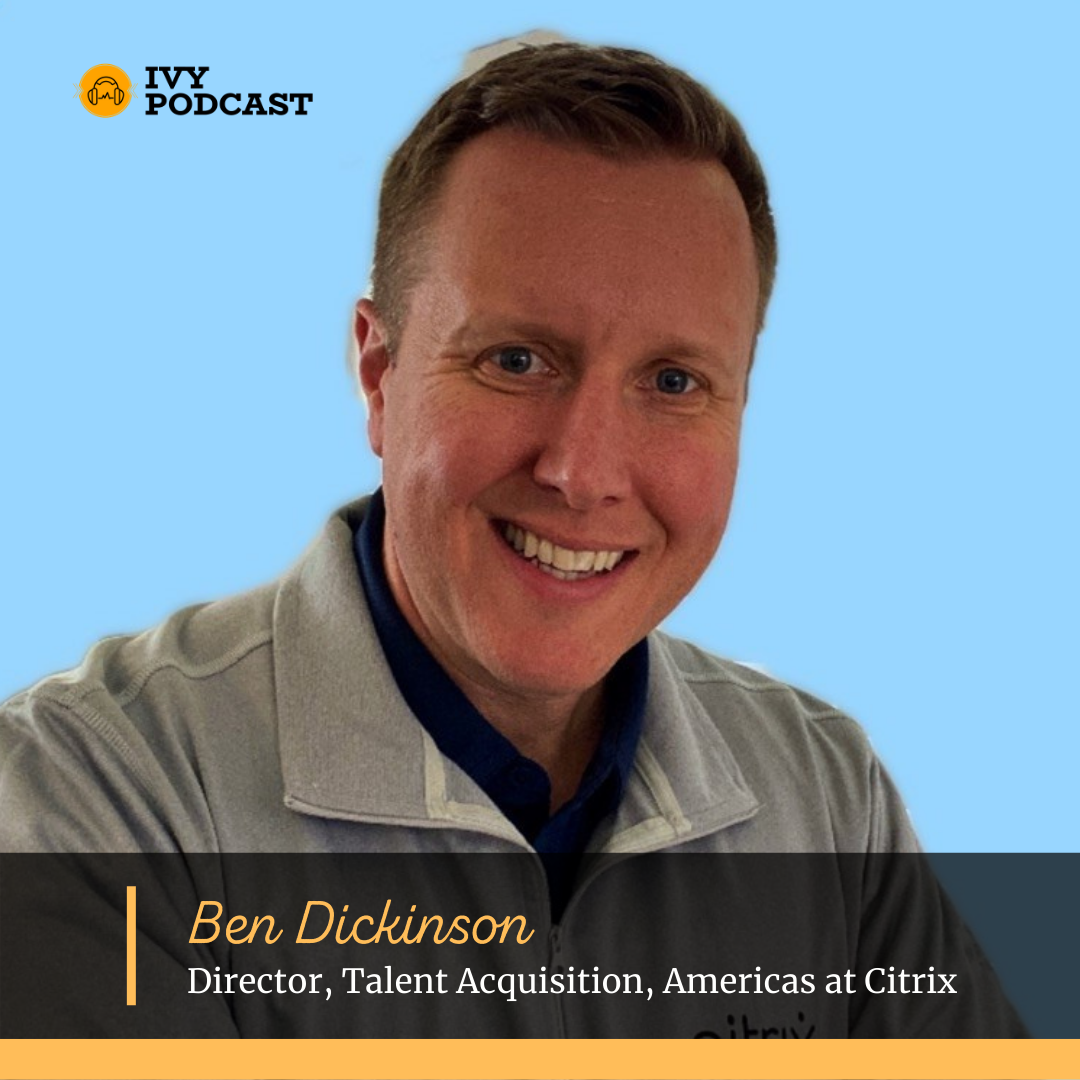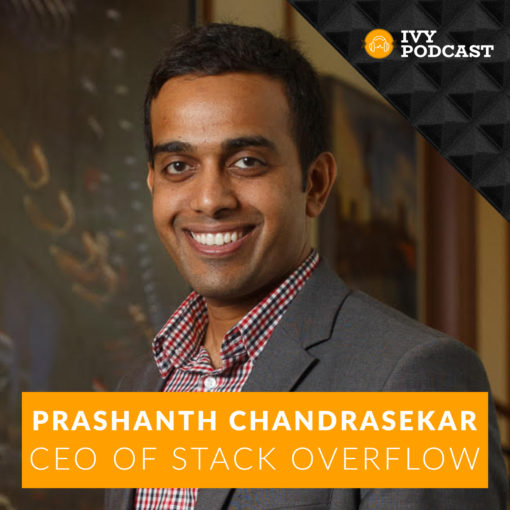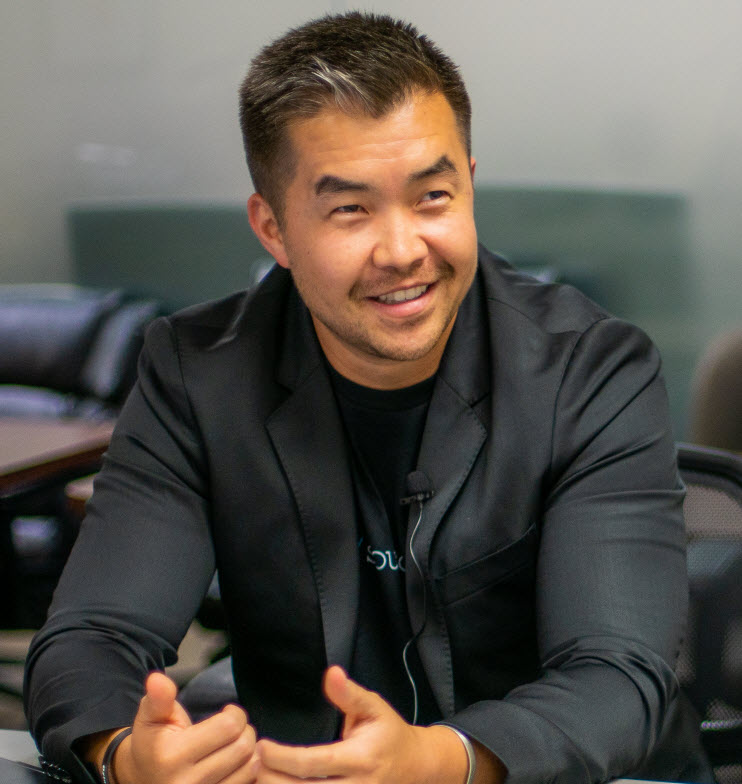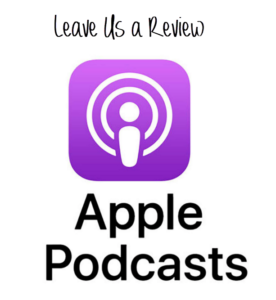
Ben Dickinson leads Talent Acquisition for the Americas at Citrix Systems in Fort Lauderdale, FL where he guides a team of recruiters and sourcers to fulfill the talent needs of an leader in the virtualization, cloud, security and networking space. A career spanning over 15 years in Talent Acquisition, Ben has led TA functions in enterprise organizations, high growth mid-sized companies and start up environments in enterprise technology, fintech and consumer services. He has a passion for talent acquisition technology and the role that it plays in the future of recruiting efficiency and candidate identification as well as evolving the recruiting function from a tactical process to a business partnership by leveraging data analysis and insights to engage his internal clients.
A graduate of Florida Atlantic University and past Board Member and Chair of the National Alumni Association, Ben resides in Fort Lauderdale, FL with his family and enjoys running, golf and the opportunity to coach various youth sports teams through his son’s involvement.
Episode transcription:
[00:00:00] Ben Dickinson: [00:00:00] Hi, I'm Ben Dickinson, director of talent, acquisition Americas at Citrix system in Fort Lauderdale, Florida. [00:00:50] Jahn Karsybaev: [00:00:50] Ben, thanks so much for finding time. Join us on the Ivy Podcast on this Friday afternoon. Glad to connect with you at the beginning of 2021, a lot going on. Great start, interesting start to the year. So thanks for finding time. Tell us a little bit more about your background professionally, where you come from career wise, and then I'll want to spend a couple of minutes talking about your current role. [00:01:13] Ben Dickinson: [00:01:13] Cool. Yeah, absolutely. And thanks very much for having me. I appreciate it. So, as I mentioned, I'm Ben Dickinson. I'm currently the director of talent acquisition Americans @ Citrix, but I had spent my whole career recruiting human resources. I went to Florida Atlantic university here down in South Florida and initially joined a boutique staffing firm based in Boca right after graduation. I wasn't like many people, I think I fell into recruiting, had a little bit of experience of it for some college days actually. But found that it was something that suited my sales skills. Bye. Enjoyment of just connecting with people and finding out about people. And it's something that I think all workers do from the beginning of their career, right? If you enjoy making connections and understanding how you can fit someone's skillset to a job or introduce them to somebody now making a successful recruiter. So after a few years focusing primarily in HR search at that firm, I ended up getting hired by one of my clients at first and worked for one of their large regional facilities down here in South Florida. And grew my career in corporate recruiting at first data, got a lot of exposure. I was really fortunate to get to go work for a global company like that, you find through my career. Anyway, I found, I went from large organizations to small organizations to sized high growth organizations. And I found that to be a really fun journey because you get things like in the big companies, tons of resources, great systems, great tools. And then I flip it over to a mid-sized company that was in a really high growth mode and help establish a TA function at that organization. We have slightly different experiences, from an employment standpoint, not as many tools and systems and not as much budget but the ability to influence and change things if you want. And that's also really fun. And then I went back for a short stint in the agency world and opened up a division for a company down here in South Florida really leveraging my network of folks that you've done here at South Florida. And then that a year ago joined Citrix to run talent acquisition for the Americans. [00:03:25] Jahn Karsybaev: [00:03:25] Oh, that's exciting. Quite a journey you have, and I can definitely relate to going from corporate fortune 500 organization to smaller company boutique shop. And I've gone through a very similar journey, so I can definitely relate to all the different experiences. I'm actually a part of a much smaller startup that we've been building in stealth mode coming from Citrix, from ultimate software, very big companies. So definitely a very interesting perspective. From that standpoint, as far as your current role being ahead of TA, tell us a little bit more about what really falls on there, your purview. We all tend to think generalize, it's just an HR function and that says, so just want to get a little bit deeper understanding for our listeners, what really falls under kind of that talent acquisition role. [00:04:09] Ben Dickinson: [00:04:09] Absolutely. Yeah. So the TA function when the organization and Citrix is quite robust, we have a number of different departments inside talent acquisition. So I run what we consider to be the delivery side of that. I lead a team of about 25 and recruiters, sourcers and university recruiters. And our responsibility is the mechanism of filling the requisitions that come through and open it up in the organization. We have internally here in TA regions and a whole centers of excellence team that covers TA, marketing, HR, and data. We've got sourcing and diversity and inclusion as well as key components. But for me and my responsibility, my team we're a team of recruiters that are partnering with the business to help them identify the right talent and bring talent to them so that they can make some hires and build their teams out. [00:05:05] Jahn Karsybaev: [00:05:05] Oh, that's exciting. You guys are on the forefront. And I've been on both sides of that equation, where I was a hiring manager and then on the staffing side as well. So it's very definitely, completely different sides when you actually hire people that will actually help the organization find and source and recruit folks. So definitely critical mission responsibilities there. So you've been in talent acquisition for most of your career, obviously, built up quite an expertise there. Share with us, any trends or ideas that really excite you in this space? What do you think is the next big thing? What are you researching? What are you passionate about? Maybe what are you looking to invest in? Just curious to get your take on that. [00:05:48] Ben Dickinson: [00:05:48] So I see that as a short or long term question really, right. So I think today and what most TA organizations, if they haven't already started to make this shift. Becoming a data-driven partnership organization is crucial to our success inside an organization inside of a larger company. So the things that we're doing here at Citrix is ensuring that we can partner with the business and help educate them on things like market conditions, talent, reliability and the talent pools that are out there for them when they go to search compensation information, right? So our recruiters are no longer just order takers at their, they're not just showing up saying, tell me what kind of job profile you want to see, and then go off and try and find the talent we need to come to those meetings. And he sort of from a partnership lens and wants to try and help educate the business as to what's happening out in the industry, in the market right now as many people know. I mean, even though we have pretty high unemployment numbers, there is a real challenge to find the specific talent that a lot of companies are looking for. And we feel that Citrix significantly wouldn't use a specific technology experience or Pacific sales experience, for example. So we have to be able to help partner with the business and help them understand. Some of the challenges that are out there and how we might better market those roles and use the information that we have available to us. So the data that we can show past performance and help get from the business on that. From a long term standpoint, what I'm personally most fascinated about is how technology has been to change the way we work. And I mean that from recruiting the TA technology standpoint, there's a lot of really interesting stuff that has been coming out in recent years. But whether it be AI, screeners, resourcing pools and I do wonder how that finds its place eventually in all large TA organizations. We've been exploring a lot of that, whether it's just front end, this aspect tools. So how can we better get through the funnel? We have examples of open positions where we'll get 500 applications almost immediately for a role. So how do I help enable my recruiter to get through those 500 applications without having to individually click through them? And then we layer in just the concept of being fair and inclusive in that process. Right? So, I mean, can we find tools that help us do that versus just relying on an individual and what maybe their own personal biases may be when they're looking at those resumes? So that's something that I find really interesting. And I know we're spending a lot of time talking to potential partners in creating that whether that's something to help ease the recruiters workload on the front end or it's something that helps us go out and find right talent out in the marketplace. Right? So some sourcing tools where we can say this is an ideal profile, go do it. A lot of the systems that we use today use LinkedIn for an example of sourcing. Well, we're still relying on the recruiters to enter in a lot of those search terms and manually handle that process. So how can we accelerate that for them and make it a little bit quicker so we can deliver it for the business, you to the business faster as well. [00:09:03] Jahn Karsybaev: [00:09:03] Right. No, that's exciting. Definitely very interesting trends. And it sounds like that initial screening, that initial evaluation process, it's very labor intensive and it's very in terms of just going through every single application and being able to funnel that and come up with almost a short list of the candidates for a particular role, if there's any type of technology that can really help streamline that process, sounds like we'll definitely help from that person. [00:09:34] Ben Dickinson: [00:09:34] it's crazy. It's, there's not a one size fits all solution in that, right. Where we have pockets, where we see higher volume, maybe we have a solution there. But then once we get to a certain level of let's call it a developer, right, an engineer. I wouldn't be able to send them to a front end assessment to evaluate if they're any good, because then we would lose the interest of the candidates. When you get to a certain level in your career, not that interested. Yeah, playing games on the front end. Right? So it's being able to create solutions that will work for specific parts of the business, but being our focus is on how can we leverage technology to get better at what we do to not just make our jobs easier, but like, are we finding the best talent for what the business needs. [00:10:18] Jahn Karsybaev: [00:10:18] For sure for sure. No, definitely. That makes sense, which brings me to another point. You mentioned the use of technology. Share with us any tools or any software and your particular technology that you guys are currently leveraging that really helps you elevate your performance, operational efficiency, or anything that you actually wish that existed. And then something that would definitely help you guys out from that standpoint, curious to get your take on that role of technology. [00:10:47] Ben Dickinson: [00:10:47] Yeah. So we're fortunate enough to have a really robust ATS system. Here at Citrix, we use Workday and it's fully integrated throughout the rest of the HRS stack here at central, too. So, I think from an experienced standpoint, we do a pretty good job, right? There's always room for improvement on how we onboard people and we bring people into the organization and communicate with candidates. But overall speaking, right, when you have a fully integrated anti-Western HRS platform, it helps when it comes to just the new hire paperwork and all kinds of the basics that make your first week on the job, really smooth and easier, maybe, pre day one on top of that. So we use Yellow as our CRM, our sourcing CRM platform. And that's really beneficial in the sourcing organization that we have stood up here. We unleashed the sourcing Oregon, a couple of different ways. So we have kind of our standard planning efforts that we know we've got wolves that we regularly have to fill, right? Whether it be certain technology, development roles or sales was one of the kinds of customer groups when it comes to things that say they have the highest volume of needs. So what we spent a lot of time pipelining and then no drip campaign, just to keep warm, campaigns getting interaction with the managers is that pipeline as well, to make sure that they're engaged. And it's not just a cold lead list sitting out on the side. And then we also want to use the sourcing team when it comes to high needs, right? So hard to build position, super unique skill set that we know is going to be difficult for us to find. We don't want just one recruiter working on that. Let's try and get some extra hands in there to help do the lifting CRM platform, like that's been really helpful to us. We use calendar on and LinkedIn talent insights as some of our advisory tools for managers. So, I went there as an enterprise customer and I think that's table stakes nowadays in the recruiting world. That's where a lot of people are going to have to find their talent. And use that as a sourcing platform for sure. But then also I find the talent insights and also the talent neuron, which is a gardener tool is another one that we leveraged to try and pull information. So when we go to that kickoff meeting, right, so we no longer call it an intake meeting, Garrett Cedric's. We refuse to use the term intake because that's more of a tactical conversation. So when a recruiter gets a new requisition, They go to a hiring manager and they have an advisory conversation about, here's what the market looks like for the role that you're looking to fill. Here's some data that I'm bringing to the conversation that shows what talent availability is, what the market's paying. How does that compare to what we're looking for? And that I think is a great first step in us creating that partnership with the business and not just looking like a service arm of the organization. And then we are, as I mentioned, I mean we're entertaining a number of different assessment tools right now. So we use today a hacker for rent and coder which is all like a tool in one paper rank is a great front end platform for us to assess more entry-level development, talent engineering, talent and then code pair is there kind of partner piece that allows us to do virtual white boarding sessions and really online interviewing or the virtual interviewing program where we had a lot of noise in the beginning of COVID. Threw everyone for a loop, right. We all had to very quickly become a virtual workforce. Thankfully Citrix or the business that we're in, I think we were really well-prepared for that. And it was just a matter of making sure everyone was using the workspace. If we had virtualized desktops almost immediately, but highly managers, right, had a lot of interesting challenges too. I mean, they'll go to the engineering side where they were used to meeting candidates face to face and having real life, white boarding sessions. They want to see a design drawn out how you think and what your methodology is. And they're like, well, we can't do this now. What do we do? And so having a tool like code pair that allows us to do virtual white boarding sessions is really helpful. And then layering in assessments where they make sense. But when we talk about that future technology, that's where I've been spending a lot of time and talking to vendors and considering your partners, do we have AI tools that will help us quickly get through these large candidates? Pools and find really top talent for us to, to identify so we can speed up the process because time is money. The longer a hiring manager has their requisition open. Yeah, the more frustrated they get and it does cost of business. We see that a lot in sales, right? So one of the metrics that we track heavily in sales is actually their time to start versus our time to fill where, and you see that a lot in teaching in general, right. Then kind of table stakes. It's either time to fill. How long has it taken us to fill racks? We've switched that metric over to the sales organization to make sure that we're focused heavily on when do we have that salesperson? In the seat starting to work because that's when they can start counting for some revenue tied to that job. And that's how we can impact the business, right. If we can get sales people in there faster, then they can start making money for the company faster and we all win. [00:15:55] Jahn Karsybaev: [00:15:55] Right. No, absolutely. Those are very interesting perspectives. Thanks for sharing. A lot of the tools that you guys are using leveraging for your operations. You mentioned some technical assessment tools. I may have some recommendations for you outside of this conversation. So there's no bias, there's no promotion but really good friends of mine will actually appear on the show. They are the founders of four different tools, in the assessment space. So definitely very interesting. [00:16:23] Ben Dickinson: [00:16:23] Yeah. I think I know what you're talking about now. We had a presentation a couple, probably two months ago when we were hot and heavy on that. [00:16:29] Jahn Karsybaev: [00:16:29] Yeah, there's quite a few in that space really evolved, especially through the past year with the pandemic. [00:16:44] Ben Dickinson: [00:16:44] I think that really elevated the need for those types of tools. So definitely there's quite a few very interesting players. So definitely gonna share that with you. One of the things that I uncovered during those conversations, right? It's almost not that it's easy to land on a technical assessment tool. There are a lot of choices out in the market, and then I think they all bring certain value and you have certain negatives to them each. But it's also we had other customer groups inside the company that were wondering how they might also leverage assessments. And so outside of tech, right? So, in tech you can have. Sort of a yes, no response, right? Does this individual possess these skills? Do they know how to code in this language? Or what have you when you get into the software with us, with that, a lot of managers find that they have, maybe they feel a little bit more comfortable at face-to-face interactions uncovering some of that stuff. How do we assess for that? And that's been an interesting riddle as we've gone through these conversations with these different partners as well, and do we decide to go down that road or not? So there is out on that, but still trying to explore it. [00:17:39] Jahn Karsybaev: [00:17:39] Yeah, but that makes sense. It would be really nice to have a comprehensive solution that encompasses different divisions within the organization. So it's not just one dimensional like this, because then it becomes from a vendor management perspective and disparate systems in place. It's definitely a challenge. So you can definitely relate to what you're talking about. You briefly mentioned some extremely challenging roles, very difficult roles to find curious to get your take on what are those types of roles? What is the most in demand yet? Very difficult to find the reason why I'm asking this question because the portion of our listeners is early stage career professionals and all the second year MBA. So, just entering the workforce and a lot of questions we get from them is around that particular aspect, which, what roles are in very high demand and very hard to find, like if I was to invest my time and resources into learning, where should I go? What should I do? So, I'd love to hear your take on from that perspective, get a PhD in data science. That's my recommendation. If you're in college, data that is huge. That is huge. It is. And you can be surprised what those jobs pay initially, especially right out of school, it's always a running joke on TA. As you have access and exposure to all the differences, you're working on positions and you're seeing what people are getting paid more than once. So if I heard a recruiter say to me, man, I really should have gotten into this. Right? Like, it's awesome to see someone graduate right away and make so much money. For us where I see the biggest lift that it's your real challenge to find the right talent for us. Security is probably number one. Yeah, I wrestled with this, I actually thought about that conversation with the team members recently. And we were talking about this cloud and cloud engineering, there is always the challenge, right? That's a hot topic. A lot of organizations particularly the tech space has moved that direction. But one of the benefits you see in the cloud side is, and then you've got AWS. You have Azure, you've got folks, sometimes different skills, but organizations, a lot of times are happy to take someone who maybe comes from a different platform and are willing to train on theirs. Right? They're not vastly different. So at least the talent pool, you can kind of cross and have like skills and just go pull someone. Then maybe that has Indian, US background for a national job, but insecurity there's we don't have that benefit. So you really see a shallow talent pool insecurity. And now that has become the number one topic, right? I mean, it's on a monthly basis, you can find an article about another organization. That's had a major security breach and it is viewed as a number one. I mean, I'm sure, if you look back in the last 10 years, the amount of CSO roles that have opened up in organizations in that time. Which was a job that didn't really exist prior to that. And that is during the entire organization dedicated to security. So for us, and we have that too, right. So we have a massive organization just dedicated to that. As we've got networking solutions, cloud solutions, staff solutions, and all those things that we need to make sure we provide a secure environment to our customers. That means that we've got to work real hard on that. And I know from a TA standpoint, security is definitely one of the biggest challenges to find the talent. The other side of it. I mean, we get some real niche skill sets, machine learning, AI, like a lot of that kind of the newer stuff where you don't get folks that have a ton of depth. If any years of experience, or even the managers sometimes have very little experience in some of these technologies. Right? So it's hard to find someone with five years of a really robust machine learning experience when the technology hasn't been around that long. Or has just barely, recently elastic search was one that. I had heard, talked about and that's like, even just you're talking like emerging tech, right. The stuff that just pops up and they're like, Hey, we need a bunch of people that can do this. And you're like, I've never heard of that. So you spend time trying to try to find that and look it up those are kind of the core areas from a technology standpoint. I think data is key, right? I mean, even NTA that there's been a massive transition from how we used to run talent acquisition, even when I think back in early parts of my career and how we reported out on things versus what we have today. I mean, we have a TIDI team here in central. That is dedicated. It's not just one person or anything that needs to be in this group dedicated to creating the dashboards that we need, making sure the data is crisp so that we can go and pull it out. And then if we have adjustments or new inquiries that we need to make, so anyone that comes with a data background is going to have and that doesn't, I don't really need to get a data science degree, which of course might be writing yourself a blank check in many ways. I mean, I think, when it comes to earning potential and need in the market, that's a great degree path. But at the same time, if you are an individual, that's not necessarily going down that path. Getting yourself familiar with it and trying to expose yourself as much as possible to data analytics and being able to speak to the numbers like that, I think is going to make you different in the candidate pool side of things. And that's very true in something like talent acquisition, and it always used to just be a soft skill thing, right? Can tend the person to talk and they pick up the phone and, and call candidates. We can teach them how to serve. Now can you analyze and then advise our customer base, right. And being able to look at the reports that we can see and make assumptions from that, and then show our clients and advise them properly on it, I think will be really helpful. [00:23:22] Jahn Karsybaev: [00:23:22] That's very interesting. The very last point that you just made. I've been hearing a lot of that and I interview a lot of executives from different companies. And when we talk about very niche skill sets and which ones are difficult to find and so forth, yes, the themes are very similar. Data advanced tech cybersecurity, all of that, but also the other aspect of that from the soft skills perspective. Yes, the technical skills, they're important, but they evolve, like you said different technologies emerge and stuff like that. So for a very successful candidate, to be able to pair that up with an extremely robust set of soft skills, emotional IQ, being able to articulate complex problems in a simple matter, I think, be able to collaborate virtually with. Through the past year we saw the elevated need for that. I think those are the types of skill set. The combination of those becomes extremely important. And that's definitely exactly what you're talking about. So definitely thanks for sharing that insight. [00:24:19] Ben Dickinson: [00:24:19] Yeah. That's definitely how a candidate would be able to differentiate themselves, particularly in any more soft skill driven role. So, that can apply. I mean, obviously finding it, but when you look at some of the sales, marketing, human resources, those groups, they're all trending that direction. And I used to have a sign in my office that said HR is the new IT 10 years ago. And it was kind of during that evolution of where organizations were all, it was me digitally, but companies were realizing quickly that the people that run the technology are far more important than the technology you just bought. Because it's immediately outdated. It needs to be customized and updated, et cetera. And I've seen that transition take place again recently when it comes to your data, right? So TA is no longer just spitting antidote anecdotes out to the business about man. It's really hard to find people, everyone I call just like this, right? Like we have to be able to bring a lot more to the table to help them understand what it is that we're doing and how we can better serve them. [00:25:20] Jahn Karsybaev: [00:25:20] Absolutely. That makes perfect sense. It makes perfect sense. From, we've talked a little bit about the different tools that you use and techniques to find the best talent. You guys were in the news recently about one of your executives saying close to 600 jobs to be filled at Citrix, which is an insane, insane number. So, I'm assuming the bulk of the workload is going to be going to fall kind of on your group, your team, your division. So from a standpoint of utilizing different techniques or strategies or initiatives you have in place that would help you really attract the top talent to your organization. Aside from the tools that you've mentioned, anything that you could share with us in terms of different strategies in place to really target that specific talent and be able to actually attract them to your organization. [00:26:15] Ben Dickinson: [00:26:15] So I think we're in a fortunate position with Citrix. So certainly when we look back at 2020, right? I mean, that's going to be the headline, I think for just about everyone. When we think about what happened in industry and we were fortunate enough, like I mentioned before, we're kind of in the business of desktop virtualization and helping people be able to work wherever they want whenever they want. So Citrix pivoted quickly when we had to move to the speed of the virtual environment. And I do think that helped us in some ways, too, right there wasn't really a ramp up period for us. It was just flipping a switch and everyone just started working for the workspace on their laptops. I also think that from a Kennedy attraction standpoint Citrix's name being in the headlines throughout 2020 in mainly positive ways, right? Like it's being a technology that has a place in an environment like we're living in right now helps tremendously individuals, I think frequently when they're thinking about making a job, they're not just talking, they don't just want to know what's the role that I play in the company, right? Like what is my job? But it's what's the company's future. What do they do? What impact do I have to the success for the company as we move forward? And fortunately I think if people can quickly see when we tell the Citrix story to them and what we're doing today and kind of our plans for the future, we are well positioned to be pretty successful in this environment, in this COVID environment which is great. We just had an announcement 48 hours ago, right? An acquisition of a kind of a content collaboration partner in a company called right on mountain California. That helps kind of close out a lot of our product offerings right back off. Is it offering, send out more and user offerings too, which is exciting. And that's part of the story our recruiters tell them we get on the phone with candidates and we talked to them, right. Is how do we engage those candidates and get them excited about that, so we created it earlier this year. And last year, sorry. What we call a TA business partner model and it mirrors a little bit of the HR business partner model. That's really popular in many organizations, right? When you sort of have an offended HR contact in the business, that gets a lot closer to the business functions. So they understand what's happening and they can help strategize around talent efforts.This is the same from a TA standpoint. So how do we embed ourselves into the business? And get to help predict the headcount needs. And the capital planning around these ways of business initiatives that are being created. So the 600 head hiring our engineering expansion, thankfully not globally. So it doesn't all sit on my shoulders. We've got a lot of development centers and organizations from Europe and Asia Pacific and in India as well. So thankfully it's pretty evenly distributed but we've got plenty of work happening with that too. And of those positions. So, one of the ways that we try to even tackle this, the struggle to find talent, is how do we develop talent from within, so a lot of early career programs I'm based here, right? So a really robust university recruiting program here, internship program, et cetera, when you are a lot of folks like even have that big number, a big chunk of that is going to be wanting two years of experience, early career. And then how can we help grow and develop those individuals? That's sometimes a lot easier, right? I mean, that certainly has its own challenges in hiring lots of individuals and developing them, et cetera. But sometimes a lot easier than going out and just trying to find a couple of really, really specific skill sets at a high level. So we've got internally, also a team marketing organization that I think has done a great job this year. And we're going to continue it into 2021 where we produce a lot of content that helps one thing that we've educated, our hiring managers on last year in 2020 was leveraging their network and helping them be a part of the solution versus just go to TA, had them bring you some candidates and you hire the one that you like. How can you be a part of that process? So if you're a hiring manager you don't have to do any heavy lift. We've got the videos produced. We've got a lot of our videos that highlighted leaders in the organization and the divisions that they run or any interesting news that's happening at Citrix. As well as other contents, that content right announced that there are things that we can create for the hiring managers. So we hand it over to them electronically and all they do have to do is just click the button to post it to their LinkedIn. And then that's getting out to their network that drives a ton of a fertile interest which has been really helpful to us. When we try, especially embark on one of these large campaigns, reach out to our alumni network to actually write. So if we had a crew of people that. And left in the last few years that fills certain roles that we know we're going to hire again in this big hiring push we'll circle back and reach out to those folks and say, Hey, this is what we've got going on now. I don't think it's going, for you over at Oracle or Microsoft or wherever you went, right? Like that was the grass greener or not. And I think a lot of people make those changes just because they want new challenges, but when great things are happening in organizations, they get excited. Maybe you want to come back to it. So those are some of the things that we do to try and tackle that. [00:31:36] Jahn Karsybaev: [00:31:36] No, that's absolutely. Thanks for sharing those strategies. That seems like a very, very diverse spectrum from a strategic standpoint, not only focusing on specific tech skill set, but also investing a little bit further in, so that way, what we talked about that early stage career professionals and invest a little bit more in, so they're learning and so their growth because at the end of the day, some of the skillset and so such unicorn said that it's difficult to find that it makes probably more sense to bring somebody in with limited experience, but willing to learn something within those lines and kind of groom that skill set and internally. So that definitely makes perfect sense. [00:32:15] Ben Dickinson: [00:32:15] You try and I try and find similarities, right? Where we have the same builder by right. When you talk about technology in organizations, they're faced with that challenge right in an IT department or something. I think you understand talent conversation, right? So is it easier to build or buy the talent? Can we go out and find some individuals that we can eventually get there? And they may not be there tomorrow, but we could eventually get there and we kind of groomed them the way we want or can we go out and just easily acquire that talent right now? I feel like obviously diversity and inclusion is going to be a big conversation in 2021. It has been in the past few years here in Tinder too, and we have an individual on the TA team that's dedicated to that center of excellence already. And I think we're fortunate enough at Citrix, we've been an individual on the HR leadership team as well, that runs diversity inclusion and belonging curates difference too. So we've had a lot of programming around that for many years, but when we talk about that from a TA standpoint, one of those the themes that has come up, a lot of those conversations is like, I think the fastest impact that we'll be able to have on diversity and inclusion is going to be at this early stage career side. Because some of the challenges that we have when it comes to technology, let's say right, 18 years, it's not that you can just wave a magic wand and solve all the diversity issues that you may have on your team, just based on the talent that's available. And so how can we help grow talent from within the organization that will go on to have green careers, whether it be at Citrix or other parts, but I think we can really tackle that pretty well, by doing that from an early career stage. [00:33:51] Jahn Karsybaev: [00:33:51] Right. Absolutely. No, that's a great strategy. Definitely expands the pool and the opportunities to really kind of fill the roles that are not [00:34:00] necessarily with talent sitting on the bench and waiting to be available. So, absolutely. Ben last month, not at least in terms of your sources of information, your sources of learning, share with us, any tools, any blogs, any Twitter profiles that you follow? What is your daily source of information? What's your content diet? [00:34:20] Ben Dickinson: [00:34:20] Yeah, so I try and consume a lot of content. I'm not spending as much time out of the house anymore, so it's a little bit harder, right? Like I used to throw podcasts off. We were driving the car around or something. It was easy to get things that way, now we're all stuck indoors. So we don't get as much as TA specific. So I mean, a bit of a, like a TA during, too, right. So I enjoy listening to folks that I think are interesting in that space. I like Tim Sackett a lot. John Leeka, I think is really interesting. He helped inform a lot of RTA business partner concepts as well. I think he's a really interesting mind in the TA space. I like James Brown a lot too. Tim Sackett has a podcast that I think is really funny. I even saw it this morning and sent an email out. I tend to gravitate towards the individuals that speak in more of a raw way. Like, so it's not just like Harvard Business Review stuff. I had an article when it's done, like why you're an idiot for checking references. And so that's enough to get me to click on it and dive in and say, okay, I want to hear his perspective on that. What's his take on that? I think Dre is a really good resource as well. If you're in the recruiting space anyway the electronic recruiting exchange has a great network here. You did that. And so I get their daily email and it's got a number of different blog topics and things like that. And then other content that I consume a couple of daily, like emails, this is a Water List and 1440, or like ones were kind of business related, but it comes from a lot of tech companies. So it helps me kind of stay informed of things like change at Intel, right. In the leadership, we talk about that a lot here internally, right? We've just got kind of a network of the TA folks that it's like, if you see something on the market that you say, Oh, Intel's just changed their leader and VMware up CEOs should have tripped over there. Let's talk about that, right? Like isn't there a talent implication there that opens up opportunities for us to go and try and poach talent from some of those organizations when they're about to go through big change. So we try to keep the team communicating about that pretty regularly in our staff meetings and whatnot. But those are probably the top ones for me that I've got a lot of entertainment stuff. He listed Joe Rogan and whatnot, but right. And of course The Cast, right. [00:36:45] Jahn Karsybaev: [00:36:45] Yeah. It's definitely going to be a bookmark after this. I appreciate it. Last but not least what's a book that you always recommend to others and why is that? [00:37:00] [00:37:00] Ben Dickinson: [00:37:00] Yeah. So number one for me is Good Leaders Ask Great Questions, like I said I love it. Yeah. It's, I mean, I'm excited a lot anyway. I follow him also, but that book has spoken to me ever since it came out years ago, five years ago or whatever it was, it's been my guidepost as far as management is concerned and leading the team that we have here. And I see the benefits of it, right? I mean, if you've got a team of champions that will work hard for you and respect you and appreciate you because you've provided that appreciation to them. And just showing the team that you care about them and you'll do what's possible to protect them from the external challenges that they have sometimes, right? Whether that's a hiring manager, that's wanting to scream at somebody or other outside forces, I've just found that there's a ton of benefit. If you can build a team that you have that level of trust with, and they know that you'll fight for them, then they'll fight for you. And it's a lot easier when you get 600 reps coming through from the engineering department and you have to tell everybody, Hey, listen, this probably means that we're going to be working this weekend. And we've got some heavy lifting to do. They're willing to do it because they know your back has their back. And so I think that's from a leadership standpoint, that's been my guideline. [00:38:19] Jahn Karsybaev: [00:38:19] Oh, that's awesome. I love that recommendation. And for our listeners, we'll make that title available in the episode notes then can't thank you enough for your time today. Lots of great insights personally learned quite a bit. Appreciate you being so generous with that information, definitely gonna stay in touch with you and perhaps we're going to do another episode later this year or next. And to see how much has changed, how much has transpired so much. Appreciate it. [00:38:43] Ben Dickinson: [00:38:43] Yeah, absolutely. Likewise. I mean, it's been really nice talking to you. We probably could have gone for two hours today, so yeah, exactly. You wanna stay here? This is my favorite stuff to talk about, but we'd like to circle back in the future and CDM to some of my predictions are right. Like if we've been taken over by AI and chatbots, but yeah, it's been really nice chatting with you and I look forward to staying in touch.
Welcome to Ivy Podcast! On this Executive Leadership Podcast we interview top executives from Fortune 500 with a focus on strategy, innovation, negotiation and everything about leadership.
Our Podcast for Executives features Thought Leaders who share practical insights for effective leadership, continuous innovation and strategy execution.
Ivy Podcast is a rapidly growing Executive Podcast, which covers topics like Hiring and Retention Strategies, Talent Acquisition, Innovation, Digital Transformation and much more.
On this Leadership Podcast, you will find conversations with the most accomplished executives from Fortune 100 companies. We aim to cover a broad range of industries and create a learning platform for the most ambitious and high potential professionals who are looking to learn from the most accomplished Executives on this Business Leadership Podcast.













